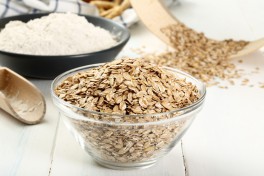 Fibers
Fibers

Dietary fibre, which is not digested by enzymes in the digestive tract, plays a significant role in the proper functioning of that tract. Fibres help with the elimination of toxins and non-digested food remainders.
They clean the intestines. In food, they act as a filler and give the feeling of satiety for a longer time. In the category of functional additives for the food industry, fibre means edible carbohydrate polymers, which are not digested and absorbed in human intestines.
The application of fibre in the food industry not only improves the physical, chemical, and health properties of a product but it also gives additional technological effects, for example:
Wheat fibre contains cellulose and hemicellulose; it is added to food in order to bind water and thicken products.
Cocoa fibre is obtained from selected hulls of cocoa grains; it is used as a dye, thickener, and aroma in the bakery and the confectionery industry instead of ordinary cocoa powder.
Pea fibre acts as an emulsifier and a viscosity regulator. It is used in, among other things, the manufacture of cured meat, tinned food, cheeses, ready-made dishes, baked products etc.
Functional fibres with strong binding and gelling properties improve rheology and texture of foodstuffs and prevent syneresis.
Functional fiber FIBREN 1100
FIBREN 1100 is a mixture of natural soluble and insoluble fibres which are not s...

